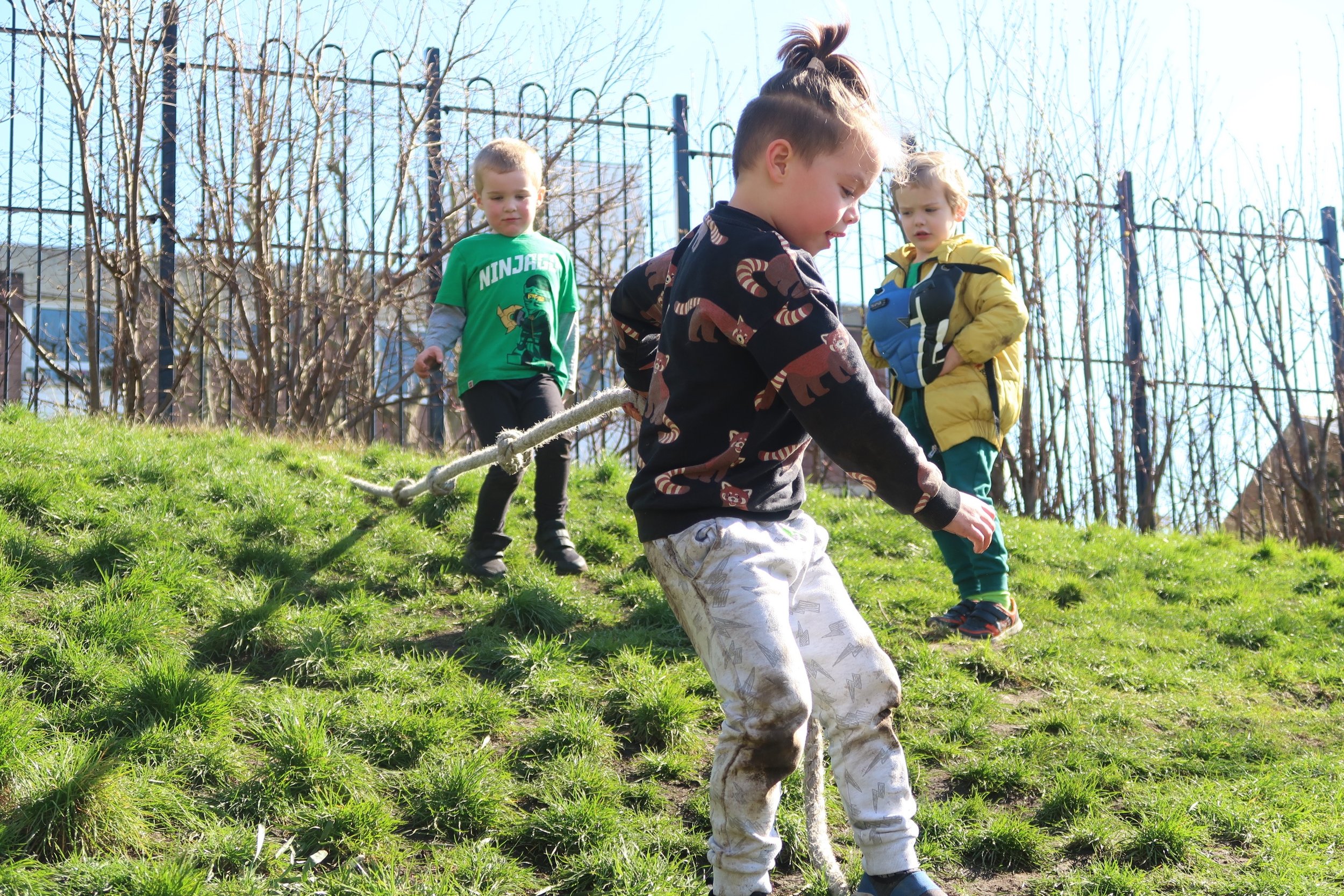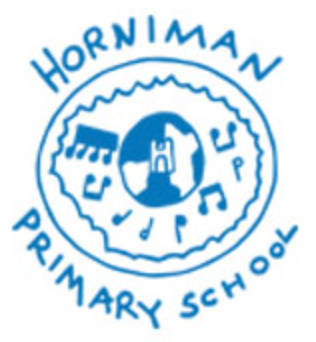
Early Years Foundation Stage (EYFS)
Horniman reception is an exciting and fun introduction to the school. The children are happy, confident and independent learners who enjoy exploring the world around them.
Learning is carefully planned around the children's interests giving them opportunities to learn through play and make choices about their learning. We have a passionate and creative Early Years team who provide a stimulating indoor and outdoor environment that enables children to develop as individuals and make good progress.
Reception class go on regular educational visits to enhance their learning. Recent visits have included: Kidzania, The Golden Hinde, the local post office, Sydenham woods, Crystal Palace Farm and the Horniman Museum and Gardens.
They have weekly Forest School sessions in which they spend an afternoon outdoors in all weathers playing and interacting with nature. They make mud pies, natural art and dens, search for minibeasts, cook on open fires and experience the changing seasons.
The children have opportunities to get to know children from other years groups through playground helpers, buddy reading, whole school events and sharing learning with a buddy class.
Overarching principles
There are four guiding principles that shape practice in Horniman school’s reception.
These are:
• every child is a unique child, who is constantly learning and can be resilient, capable, confident and self-assured;
• children learn to be strong and independent through positive relationships;
• children learn and develop well in enabling environments, in which their experiences respond to their individual needs and there is a strong partnership between practitioners and parents/carers;
• children develop and learn in different ways and at different rates.
The areas of learning and development
There are seven areas of learning and development in reception. All areas of learning and development are important and inter-connected.
The Prime areas Three areas are particularly important for building a foundation for igniting children’s curiosity and enthusiasm for learning, forming relationships and thriving.
• Communication and language development involves giving children opportunities to experience a rich language environment; to develop their confidence and skills in expressing themselves; and to speak and listen in a range of situations.
• Physical development involves providing opportunities for young children to be active and interactive; and to develop their co-ordination, control, and movement. Children are helped to understand the importance of physical activity, and to make healthy choices in relation to food.
• Personal, social and emotional development involves helping children to develop a positive sense of themselves, and others; to form positive relationships and develop respect for others; to develop social skills and learn how to manage their feelings; to understand appropriate behaviour in groups; and to have confidence in their own abilities.
The Specific areas, through which the three prime areas are strengthened and applied:
• Literacy development involves encouraging children to link sounds and letters and to begin to read and write. Children are given access to a wide range of reading materials (books, poems, and other written materials) to ignite their interest.
• Mathematics involves providing children with opportunities to develop and improve their skills in counting, understanding and using numbers, calculating simple addition and subtraction problems; and to describe shapes, spaces, and measures.
• Understanding the world involves guiding children to make sense of their physical world and their community through opportunities to explore, observe and find out about people, places, technology and the environment.
• Expressive arts and design involves enabling children to explore and play with a wide range of media and materials, as well as providing opportunities and encouragement for sharing their thoughts, ideas and feelings through a variety of activities in art, music, movement, dance, role- play, and design and technology.
Characteristics of Learning
The characteristics of effective teaching and learning are:
• playing and exploring - children investigate and experience things, and ‘have a go’;
• active learning - children concentrate and keep on trying if they encounter difficulties, and enjoy achievements; and
• creating and thinking critically - children have and develop their own ideas, make links between ideas, and develop strategies for doing things.
Children are taught through a variety of topics based around the children’s interests. These include topics such as superheroes, space, fairies, animals and pirates.
Children have access to all areas of learning both inside and outdoors each day. They are taught through a mix of adult led and child initiated activities.
Observation and Assessment
Children are continually assessed through observation by adults in the setting.
Parents/Carers know their children much better than we can hope to so we ask that parents/carers contribute observations by filling in a wow star.
Click here to download a wow star sheet
Baseline
Horniman School assesses children using its the statutory Reception Baseline Assessment (RBA)
The RBA is an age-appropriate assessment of early mathematics and literacy, communication and language. It is delivered in English and is administered within the first six weeks of a pupil starting reception. The assessment has two components, each consisting of practical tasks using physical resources. There is an online scoring system for the practitioner to use as the pupil engages with the tasks. The RBA is used to create school-level progress measures for primary schools which will show the progress pupils make from reception until the end of key stage 2.
The assessment is carried out by the class teacher in a relaxed and age appropriate way. Children do not receive individual scores but the assessment, together with teacher observations and interactions helps the teacher know where the child is at and what their next steps should be.
Early Learning Goals
At the end of the reception year all children are assessed on their progress towards the Early Learning Goals.
All children are assesses to be working towards the goal or achieving the goal.
At the end of the year you will be informed which goals your child has met in the annual report to parents/carers.
For a full list of the Early Learning Goals and the steps towards achieving them
click here to view Development Matters.
Phonics
Children are taught phonics using Read Write Inc phonics programme. They are taught phonics daily and their phonic knowledge is applied through reading and writing activities throughout the curriculum. Read Write Inc phonics books together with a variety of phonetically decodable reading books are used to help support phonic development.





